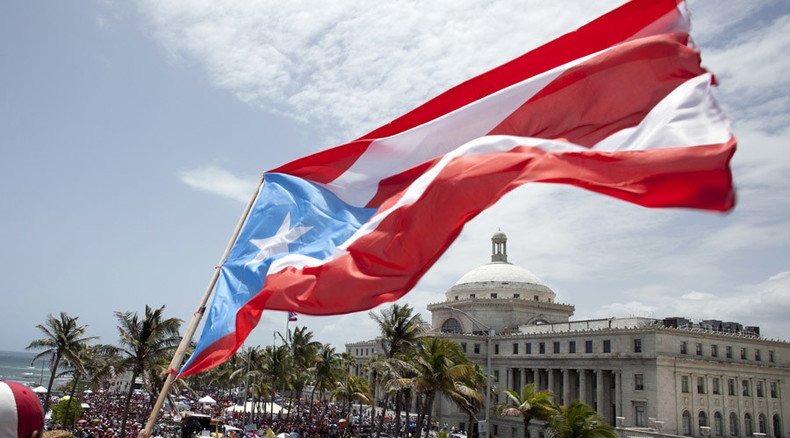Puerto Rico defaults for 1st time ever; is ‘death spiral’ next?

The Commonwealth of Puerto Rico is now in default for the first time in history after it only paid $628,000 of a $58 million debt payment it owed over the weekend.
According to the Government Development Bank for Puerto Rico (GDB), the commonwealth simply did not have the cash to make the bond payment owed to the Public Finance Corporation (PFC). Puerto Rico is currently some $72 billion in debt.
"Due to the lack of appropriated funds for this fiscal year the entirety of the PFC payment was not made today (the first business day after the Saturday deadline)," GDB President Melba Acosta-Febo said in a statement.
READ MORE: Debt-ridden Puerto Rico fails in bid for municipal bankruptcy rights
“This was a decision that reflects the serious concerns about the Commonwealth's liquidity in combination with the balance of obligations to our creditors and the equally important obligations to the people of Puerto Rico to ensure the essential services they deserve are maintained."
As a result of the tiny payment, the credit rating agency Moody’s said that Puerto Rico has defaulted on its debts.
"Moody's views this event as a default," Emily Raimes, vice president at Moody's Investors Service, said in a statement to CNBC. "Debt service on these bonds is subject to appropriation, and the lack of appropriation means there is not a legal requirement to pay the debt, nor any legal recourse for bondholders.”
The Puerto Rico crisis, explained http://t.co/otFmZtCgrVpic.twitter.com/A2bThw4xm9
— Vox (@voxdotcom) August 3, 2015Raimes added that it does not believe the island has enough cash to make all the payments it needs do, and that similar news is on the way.
"This event is consistent with our belief that Puerto Rico does not have the resources to make all of its forthcoming debt payments,” she said. “This is a first in what we believe will be broad defaults on commonwealth debt.”
According to CNN, Puerto Rico owed a monthly debt payment of $483 million. The vast majority of that was actually paid except for the $58 million owed to PFC, something the outlet described as a strategic decision since that debt is owned by credit unions and Puerto Ricans – mainly retirees – who don’t have much of a chance to battle the move in the courts.
READ MORE: No federal bailout for Puerto Rico – White House
The next step in the process could involve Puerto Rico and the PFC getting together to negotiate some kind of restructuring plan. It’s possible that such a plan will push the island’s government to back austerity by raising taxes and lowering spending.
In June, Puerto Rico Governor Alejandro Garcia Padilla said the commonwealth cannot pay its debt and warned that a “death spiral” could occur if restructuring wasn’t possible.
“There is no other option. I would love to have an easier option. This is not politics, this is math,” Garcia said at the time. “My administration is doing everything not to default … But we have to make the economy grow. If not, we will be in a death spiral.”
Puerto Rico is in default: What you need to know about the crisis http://t.co/kxKg7CHqfs#puertorico#debtpic.twitter.com/Prlmdyhcel
— Heather Long (@byHeatherLong) August 3, 2015The White House has already ruled out providing the commonwealth with a bailout, and since the island is not a municipality of a state, it does not qualify for bankruptcy. The Obama administration said it would ask Congress to look into the possibility of allowing Puerto Rico to do so, but it’s unclear how lawmakers will act in response to the situation.
“There’s no one in the administration or in DC that’s contemplating a federal bailout of Puerto Rico,” White House spokesman Josh Earnest said in June. “But we do remain committed to working with Puerto Rico and their leaders as they address the serious challenges.”
Puerto Rico’s problems run the gamut from a heavily damaging, decade-long recession and high unemployment to government mismanagement and excess spending. Between 2010 and 2013, some 48,000 people left Puerto Rico to find jobs in the US mainland every year.
One resident, 26-year-old Omar Rodriguez, just recently left with his family and moved to Austin, Texas, where both he and his wife obtained jobs.
"I wouldn't imagine having the same quality of life in Puerto Rico at the moment and that saddens me," Rodriguez said to CNN. "Saying goodbye to my parents ...it was a bit unbearable."












